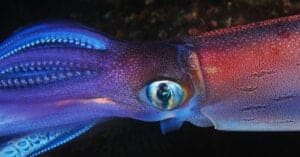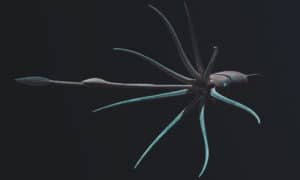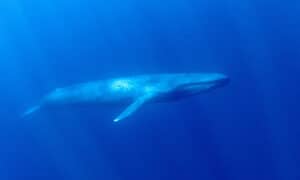This is the stuff of nightmares! A diver is attacked by a giant Humboldt squid and actually gets bitten by its beak. Keep scrolling to watch the full video of this terrifying encounter between British naturalist Steve Backshall and a monster from the deep!
Check out This Terrifying Squid Encounter!
How Dangerous Are Giant Squid Encounters?
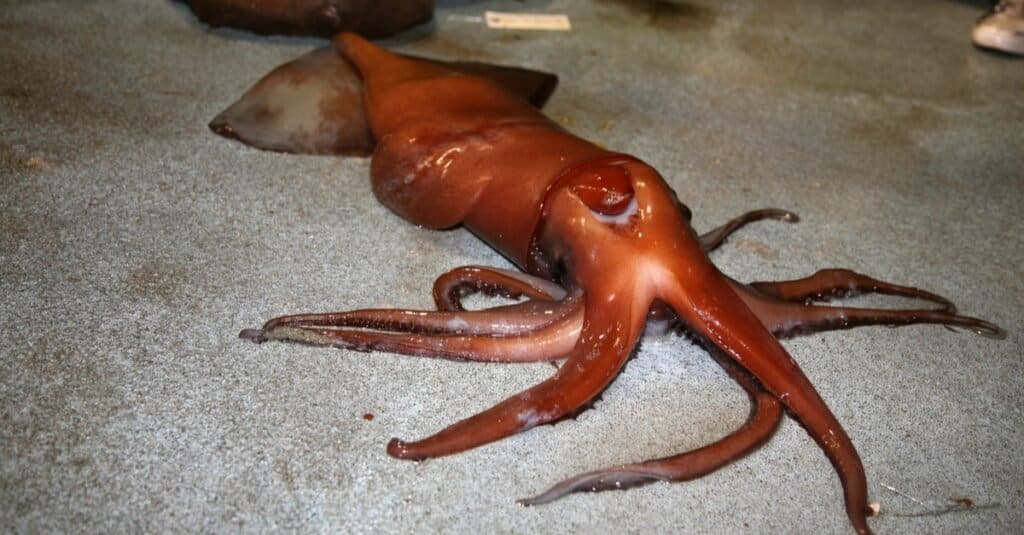
Divers are divided on whether squids are dangerous to humans
©mikeledray/Shutterstock.com
Humboldt squid are also called ‘jumbo squid’ and ‘jumbo flying squid’. They are found in the eastern part of the Pacific Ocean, closer to the United States. It is a predatory cephalopod that lives off small fish and crustaceans. It also eats other cephalopods including other squids and octopuses. When it finds prey, it grabs it with its tentacles and gives a very nasty bite with its sharp beak. This structure is two inches long and very hard.
Giant squid encounters can be very unpleasant when they do the same thing to human divers! The most well-known attack was probably on diver Scott Cassell who was filming in waters off La Paz, Mexico. His giant squid encounter left him with a burst ear drum, a dislocated shoulder, and a broken wrist.
What Precautions Should Divers Take in Deep Sea Environments?
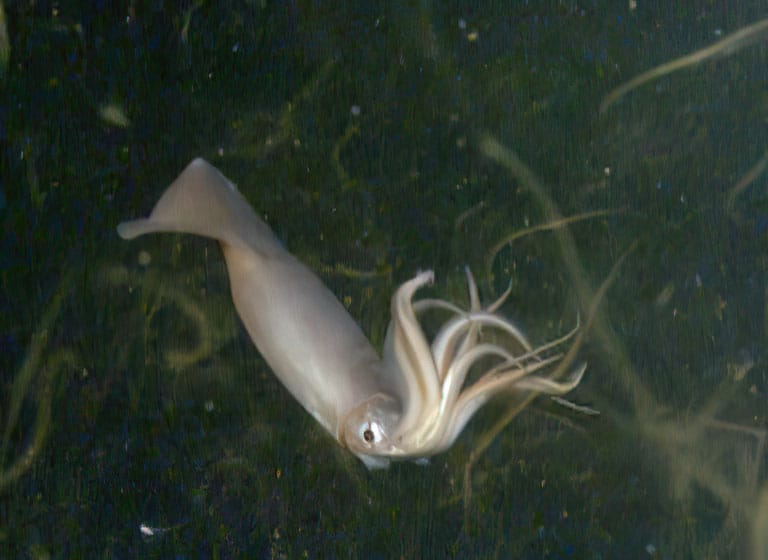
Some private dive companies in Mexico require clients to wear body armor or to stay in dive-in cages when exploring waters that are known to be squid habitats.
©Image courtesy of NOAA/MBARI 2006 / public domain – License
Whilst there have been several reports of attacks on humans by these squids, many scientists believe that the actual danger that they represent has been overblown. Some dive companies may even be churning up water on purpose to make the squid agitated.
Nevertheless, it makes sense to take some precautions! Some private dive companies in Mexico require clients to wear body armor or to stay in dive-in cages when exploring waters that are known to be squid habitats. Scott Cassell now wears a custom-made suit of fiberglass and Kevlar body armor.
Brad Seibel is a University of Rhode Island biologist and a leading expert on the species. He advises divers to always carry a backup dive light and to be tethered to a boat. General precautions recommended by the Professional Association of Diving Instructors include making sure that you have the appropriate training, keeping equipment well-maintained, and never diving alone.
Is it Normal for Squid to Attack Divers?
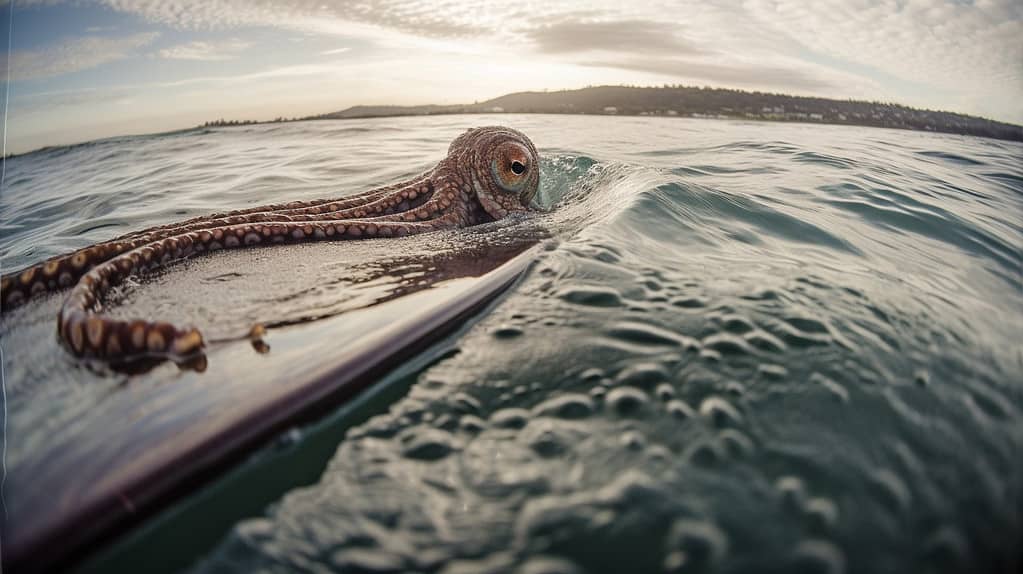
The giant squid is a species of deep-ocean-dwelling squid in the family Architeuthidae.
©A-Z-Animals.com/N/A
There are many species of squids and perhaps the more aggressive of the species is the Humboldt squid. They are thought to be fierce predators and there are numerous accounts of them attacking divers. It is unclear if they are actively seeking out divers as prey or are simply reacting in a defensive manner.
Scientists believe they may simply be attracted to light sources and strong light reflections, which divers give off with their gear. The other school of thought is that they are simply curious. However, it is agreed that as divers enter into the deep, which is squid territory, there is a higher probability of being of encountering a defensive squid.
While squid may not consider humans a food source, there is a good possibility that they will strike if you are a diver. Surface swimmers have not encountered the same hostility.
How Large Are Adult Humbolt Squid?
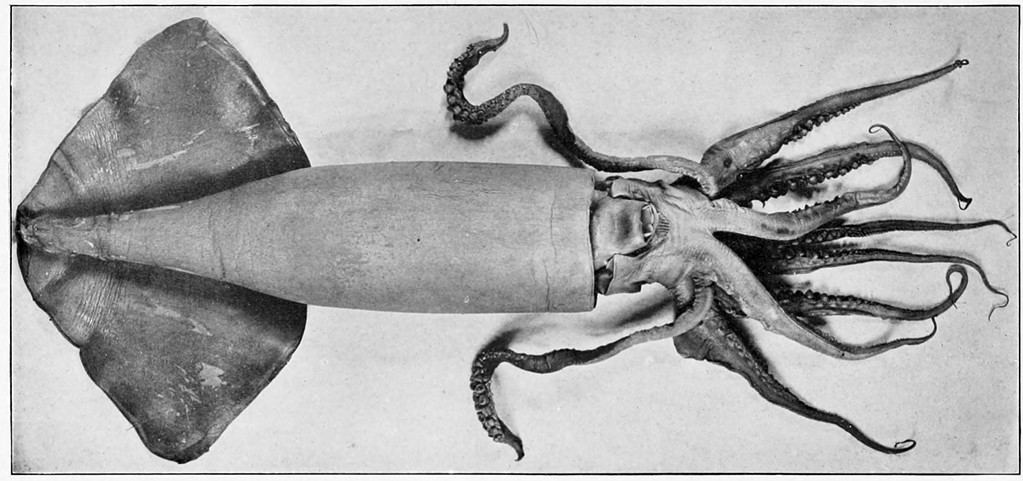
©AnonymousUnknown author, Public domain – License
Humboldt squid, also known as the jumbo squid, are one of the many species of giant squid found in the ocean’s depths. They average lengths between 6 to 8 feet and can weigh as much as 110 pounds. They can have a mantle length of almost 5 feet.
The photo featured at the top of this post is © Konstantin Novikov/Shutterstock.com
Thank you for reading! Have some feedback for us? Contact the AZ Animals editorial team.



